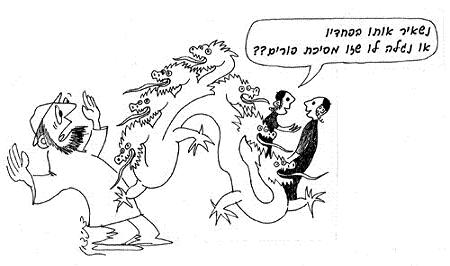
The early sages ruled the sons must study Torah and fathers must teach them, but daughters do not need to study Torah and their fathers are not obligated to teach them. The scholars clarify the Scriptural source for this rule. It is written “You shall teach them to your sons,” meaning that the sons are taught and not the daughters (Deuteronomy 11:19). How do we know that daughters are not obligated to learn on their own? It is written “you shall teach” with defective spelling, so that the word could also be read as “and you shall learn.” This shows that the teacher and student have the same rule; as the father does not have to teach the daughter, the daughter has no obligation to learn.
The sages also ruled that if both father and son want to learn Torah but for financial reasons only one can, the father should learn and the son earn a living. But if one is much sharper and more studious than the other, the better student should go learn. There was an incident involving Rav Acha, who sent his son to study in the study hall headed by Abaye. When Rav Acha noticed that his son was no Torah genius and that he had a greater talent for studying than his son, he sent his son home to earn a living and went to the study hall. When the head of the yeshiva, Abaye, heard that Rav Acha was coming he decided to take advantage of Rav Acha’s righteousness to destroy the horrible demon which plagued scholars who entered the study hall in pairs. He told everyone not to provide hospitality to Rav Acha so he would be forced to sleep in the study hall, meet the demon, and slay him. Rav Acha slept in the study hall and the demon appeared in the form of a seven-headed crocodile. Rav Acha prostrated himself and prayed for the demon’s death. With each prostration one head was cut off the seven-headed demon until the demon was killed. The next day Rav Acha met Abaye, the head of the yeshiva, and told him “If there had not been a miracle, the demon would have killed me.”
(Babylonian Talmud, Tractate Kiddushin 29b)
